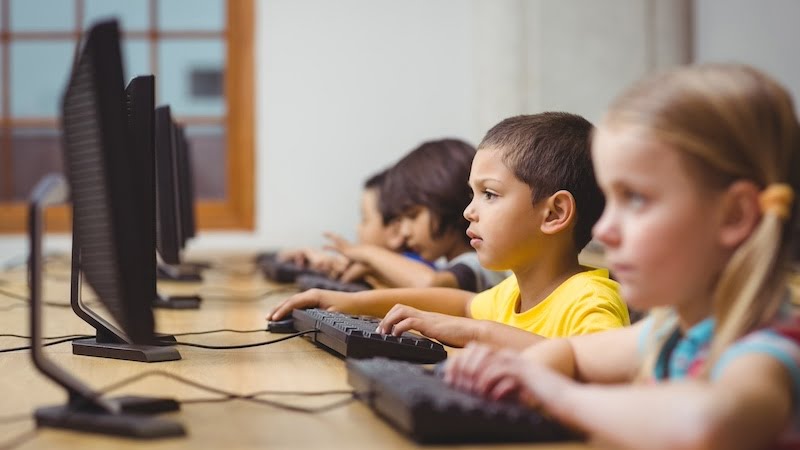
Screens have become an integral part of everyday life. Whether at the supermarket checkout, on the train platform or on our smartphone: screens now accompany us in almost every situation in life. But a lot of screen time can have negative effects, especially on children.
According to a study from 2022, television is still the number one media user for children. 67 percent of the children surveyed said they watch TV every or almost every day.
But smartphones and tablets are also becoming increasingly important among children and young people. But how much time should they actually spend in front of the screen? There are guidelines that parents and educators can use as a guide.
How much time do children spend in front of a screen?
For the “Young Families 2023” study, Pronova BKK examined, among other things, the media use of children and young people in Germany. In a holiday week, six to nine year olds spend an average of 8.1 hours in front of a screen.
For ten to 13 year olds it is twelve hours, for 14 to 17 year olds it is an average of 15.6 hours. That sounds like a lot at first.
But if you consider that working people with a computer workstation look at their PC for around eight hours a day and perhaps use smartphones and televisions in their free time, the number is probably very similar. However, significantly lower numbers are recommended for children.
But how much time makes sense?
For children, however, there are recommendations depending on their age. In Germany, for example, this is published by the Federal Center for Health Education (BZgA).
Accordingly, children up to the age of three should not spend any time in front of the screen. A maximum of 30 minutes of listening media is recommended every day.
For children between three and six years old, the BZgA recommends a maximum screen time of 30 minutes per day. There are also 45 minutes for listening media. For six to ten year olds, 45 to 60 minutes a day is listed for screen time.
For older children and young people the numbers are a little higher:
- 10 to 12 years: one hour a day or seven hours a week
- 13 to 14 years: an hour and a half every day or 10.5 hours a week
- 15 to 16 years: two to two and a half hours a day or 14 to 17.5 hours a week
BZgA head Heidrun Thaiss assumes that “digital media can be useful per se”. These should be enriching, fun and help with learning.
As long as media consumption does not take up all of your free time and put a strain on family relationships, the right amount is given.
What effects can too much screen time have on children?
But what happens when children spend too much time in front of the screen? Researchers from the University of Bristol, among others, have been looking into this question.
There is a strong connection between screen time and behavioral problems in children. These include, among other things, signs of hyperactivity and problems with mental well-being.
Children who consumed a lot of media but also had a lot of exercise performed even worse when it came to behavioral problems and hyperactivity. However, these children were better able to manage their emotions and had better relationships with their peers.
Also interesting:
Source: https://www.basicthinking.de/blog/2024/02/21/kinder-bildschirm/


